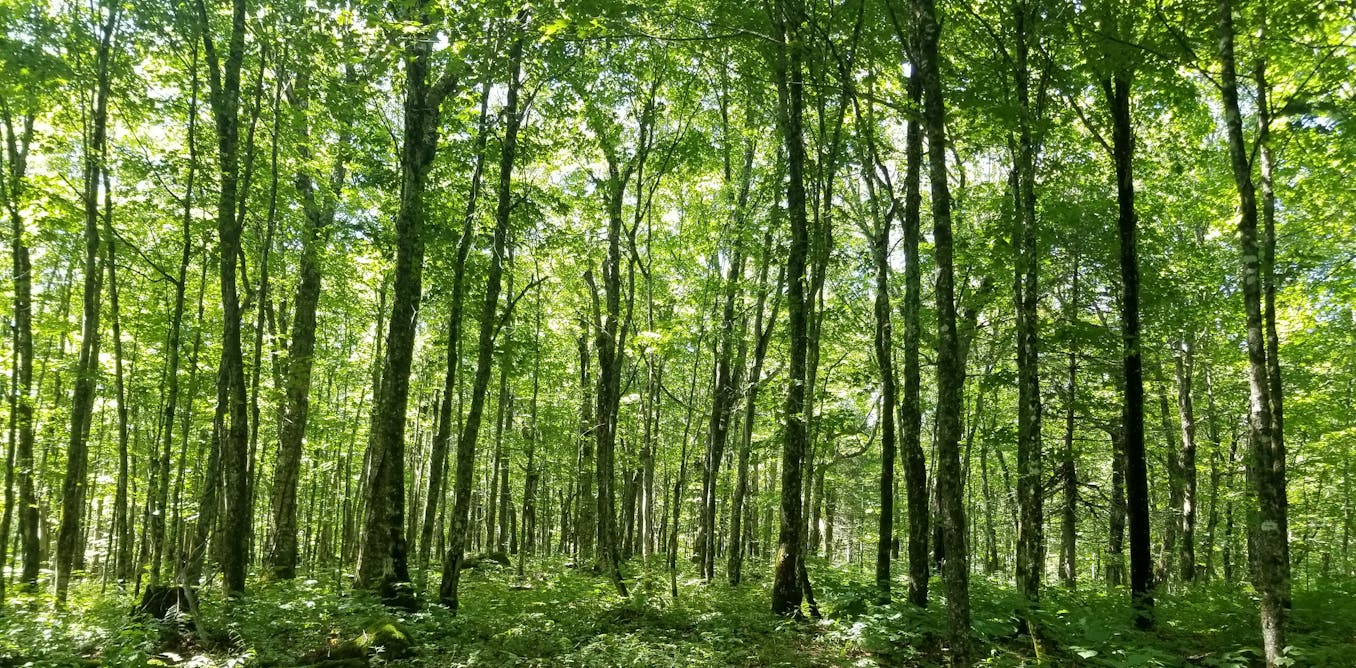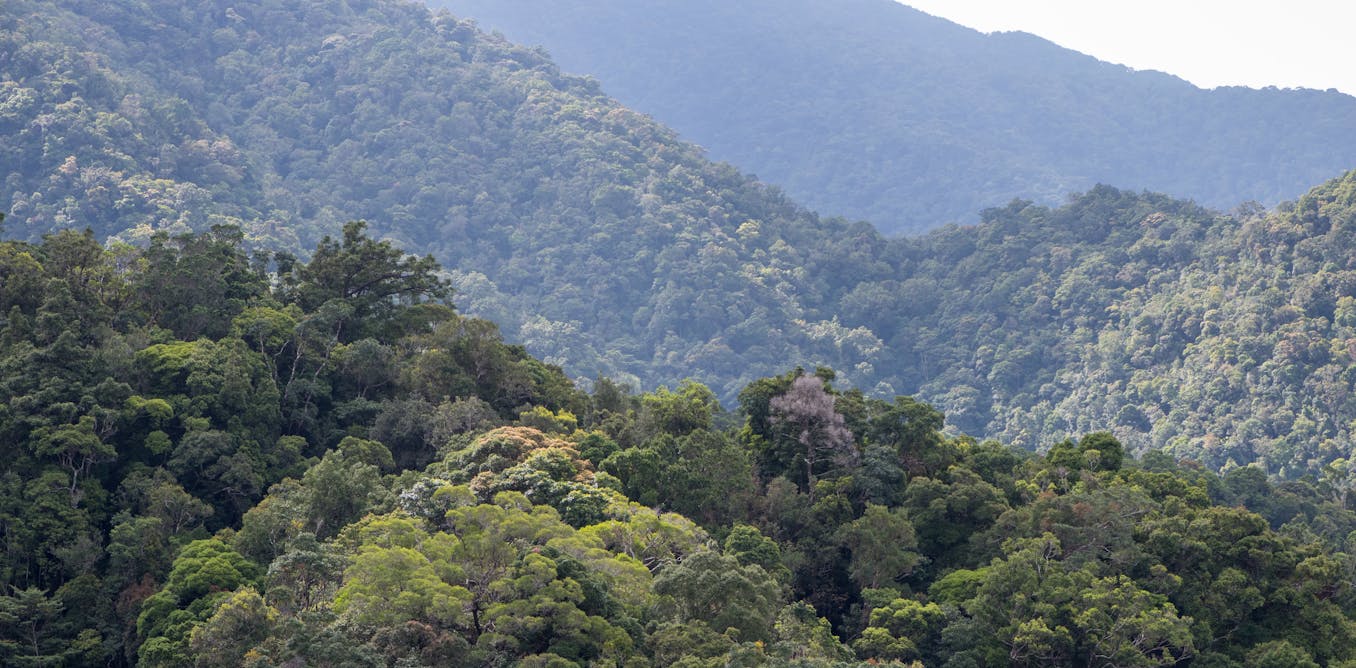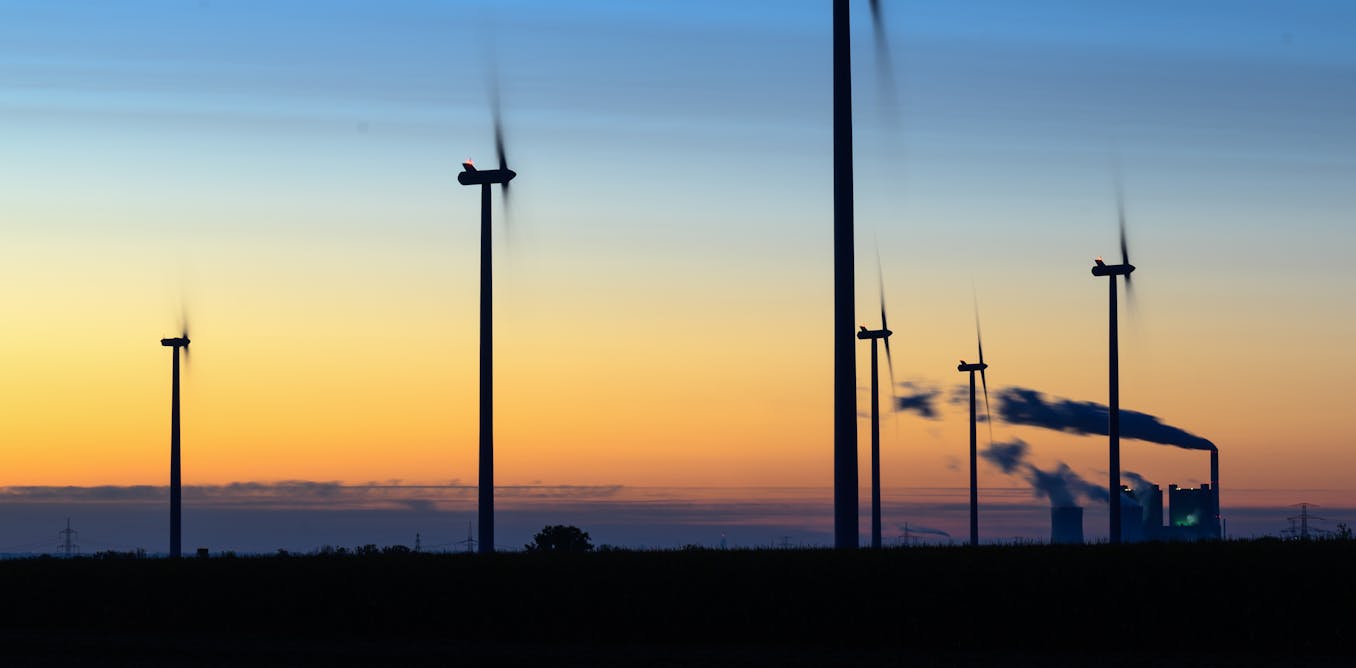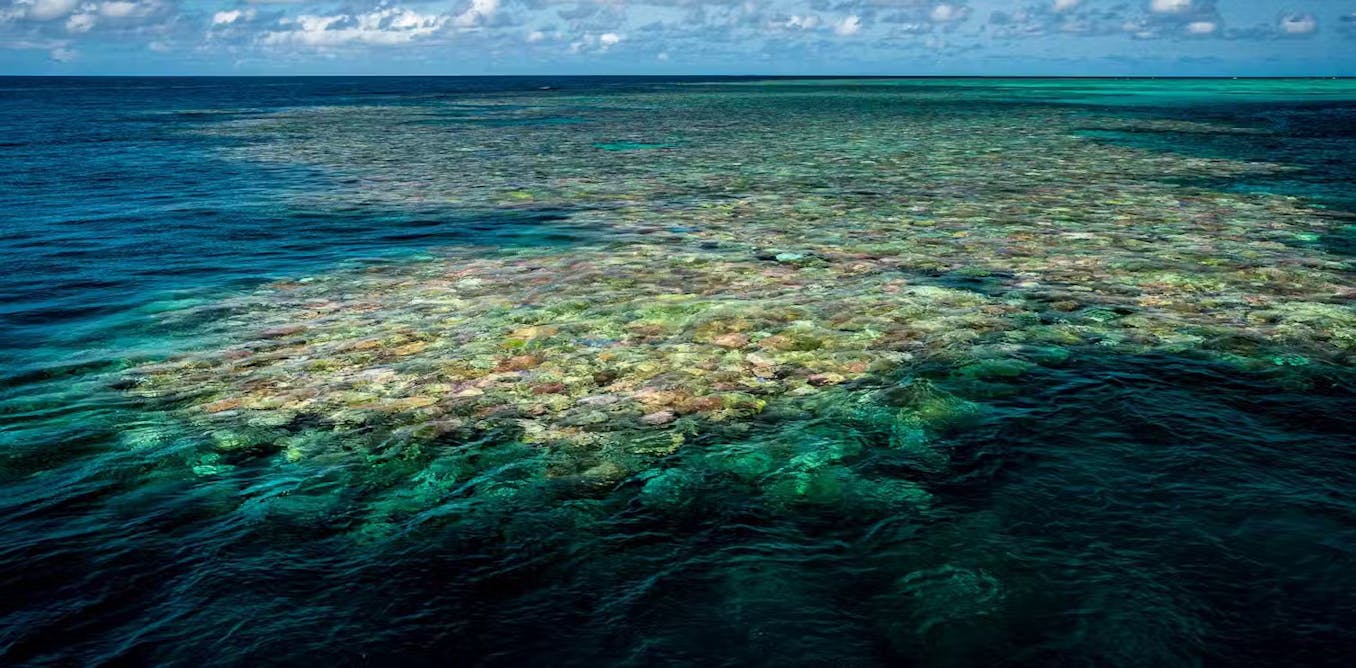Mozambique could be one of the world’s largest energy suppliers. Huge natural gas reserves are located off the country’s northern coast. But they are not being exploited – because of a brutal insurgency involving Islamist militants.
When giant natural gas fields were discovered off Mozambique’s coast, Western investors came in droves. French company TotalEnergies was among those to secure a lucrative license. In 2019, it pledged to invest 20 billion US dollars by 2024. The first gas deliveries were to begin in 2024.
But the French energy giant later suspended work on the project and withdrew all its workers. Because since 2021, jihadist militants have wielded control over large parts of the northern province of Cabo Delgado. They call themselves Ahlu Sunna Wal Jammah after the main Sunni branch of Islam. More than a million people have fled their homes.
Last year, Mozambique reached an agreement with faraway Rwanda to have its forces provide security for the gas installations and the surrounding villages. A force of 2000 Rwandan soldiers have succeeded in bringing calm to the area. Outside of the provincial capital of Pemba, it’s the only place in Cabo Delgado that’s safe. But whether TotalEnergies will resume the project, and when, remains unclear.
#documentary #dwdocumentary #mozambique
______
DW Documentary (English): https://www.youtube.com/dwdocumentary
DW Documental (Spanish): https://www.youtube.com/dwdocumental
DW Documentary وثائقية دي دبليو (Arabic): https://www.youtube.com/dwdocarabia
DW Doku (German): https://www.youtube.com/dwdoku
DW Documentary हिन्दी (Hindi): https://www.youtube.com/dwdochindi
Soldiers patrol a city in northern Mozambique. They pass by rows of destroyed shops and homes. A handful of stores have just reopened. The soldiers have come all the way from Rwanda, which lies two thousand kilometers away to the north of Mozambique. Their official mandate is to protect the civilian population.
But they’re also guarding this: Off the tip of northern Mozambique, on the border to Tanzania, lie huge deposits of natural gas. If Mozambique could extract the gas, it would become one of the largest energy suppliers in the world. One of the world’s poorest nations could become very rich.
But the equipment has been shut down, nothing is happening. Mozambique’s gas wealth remains tantalizingly out of reach. And not the blessing it was hoping for. The equipment is being guarded by Rwandan police and soldiers. It belongs to the French energy giant TotalEnergies. A huge, floating hotel boat has been pulled onto land.
It’s designed to house 3000 workers, but now stands empty. TotalEnergies had committed 20 billion dollars to the venture. It’s the largest private investment project on the African continent. The Rwandan army’s spokesperson knows his forces are here because the governments of Mozambique and Rwanda have reached a military aid agreement.
Actually the fact that this was one of the locations that we arrived and started our operations is quite important because it was very important for Palma district. But we moved on to other parts – Mocímboa da Praia and several other parts of the two districts that we were assigned.
And so the main purpose is to restore state authority and to return civilians to their normal lives. The operation has since been expanded to three districts. Rwanda may be small, but it’s politically ambitious and its forces are perfectly confident they can keep the insurgents at bay.
The Rwandan brigadier general pays a visit to the city of Palma, which is right near the gas fields. It’s a visit designed to reassure residents that they’re now safe which they weren’t before. On March 24th, 2021, Palma was attacked by the jihadists. This footage was filmed by national broadcaster TVM.
Mozambique’s army and police force struggled to repel the insurgents. It took a week of fighting before they could drive the militants out of the city. Here, journalists were just interviewing a soldier, when shots rang out nearby. The soldiers ran in the direction that the shots were fired from. The journalists, meanwhile, sought cover.
Chaos ensued, as Mozambique’s forces struggled to drive back the insurgents. The jihadists later filmed themselves and posted the footage on a website of the so-called Islamic State militant group or I-S. It’s unclear how many fighters they have. Estimates range from between 2 and 3000.
At the start of the insurgency, most of them were disaffected young men from the local area. But I-S militants soon hijacked the movement for themselves. Foreign fighters swelled their ranks, turning it into a brutal jihadist insurgency. The man with a friendly smile could be one of those who behead their victims,
A common practice among the group. They call themselves Ahlu Sunna Wal Jammah, after the main Sunni branch of Islam. Analyst Borges Nhamirre believes I-S influence in the region is limited but nonetheless significant. There are a number of organizations that claim responsibility for the terrorist attacks, including the Islamic State.
I-S is there primarily to provide a propaganda platform for the terrorists. In this war, propaganda is as important as the actual attacks. It gives the terrorists publicity for what they are doing. Second, there are the foreign fighters. In 2021, the Rwandan army came on the scene, and began facing down the insurgents.
They drove out the Ahlu Sunna Wal Jammah from the areas that they were assigned to. These include the city of Palma, which is now considered safe. Back in March 2021, these streets were strewn with corpses. Many of them had been beheaded. Another reason for the Rwandan security forces to remain on their guard.
They know how brutal the insurgents are. The government is 2500 kilometers away in the capital, Maputo. It’s mostly tight-lipped about the insurgency and the security operation. But the people here in Palma have seen the posh cars of the Europeans and Americans. Some have a sense of how wealthy their province is.
But they’re not expecting to benefit from it. In any case, there’s been no progress with the gas exploration since March 2021. And it’s quite possible that this strategically placed city is also home to members of the terror group, who are lying low, waiting for another opportunity to attack.
Lucilio Cossa witnessed the attack on Palma firsthand but survived. He does repair and maintenance jobs at a hotel in Palma. Before the insurgents arrived, it housed many Europeans, as well as contractors from South Africa, hoping to earn money from the gas plant. It was around 10 a.m., or maybe 11 even.
I was working back there. We heard gunshots and thought there must be some kind of problem. But we weren’t immediately worried. We thought our soldiers were doing practice drills. But then we started to hear more and more gunshots, and that’s when we got scared.
We ventured out into the street and saw people running all over the place. They were all petrified, you could see that. Lynn Lury from Kenya, who owns the hotel, wasn’t in Palma at the time. But her manager, Robby, told her about it. After a while, people started seeking refuge here. Nobody expected it.
And very, very frightening because people knew what these extremists had been doing to people in the bush chopping them up and being very graphic about it. So you can imagine the fear of everybody that was in Palma and, as Robby said, we opened the gates,
Because lots of people came running down here, banging on the gates, so we opened them and allowed them in because you just can’t leave them out there as cannon fodder, simple. After a few days, some of those who had found shelter here tried to get to the gas plant.
But Lynn Lury says most of them were killed. Only a few managed to escape, by hiding in the bush for days on end. That same bush is now patrolled by Rwandan soldiers, on the lookout for insurgents. The Rwandan brigadier general has come to meet with Matteus Caroma,
An official in the small town of Awasse. Caroma wasn’t around when the militants attacked his town. He says he would have been killed immediately otherwise. The place is in ruins but at least he’s now able to return. I feel like a free man again.
People sense that things are back to normal again now. Normal in that the children can now play outside, but soldiers are still patrolling all the time. The Rwandan army is nevertheless confident that the insurgents won’t be able to mount any significant comeback here.
They desire to establish a caliphate in this particular part of Mozambique. So their plans were not successful, clearly. They were defeated on the ground. There are a few remnants scattered in different areas and they were not able to reorganize themselves. So the few areas that they moved into were also recently dislodged.
But why did the insurgents attack Awasse in the first place? It’s not an important town. But what it does have is an electricity plant, and that appears to have been the target. So the insurgents destroyed this plant, thereby cutting power to five districts. So we always ask ourselves:
What was the rationale behind destroying a power plant? So it actually played down their ability to maintain the war effort. So we dislodged them from this location when they were actually staying in the bushes. The power plant has now been repaired. So Awasse and the surrounding villages have electricity again.
But what would happen if the Rwandan forces left? Mozambican troops would have to take over. The capital Maputo is where the big political decisions are made. And there are plenty of people here hoping to benefit from the gas fields up north. Right now, Mozambican soldiers are undergoing training from European Union forces
As part of a mission to equip them to respond to the uprising in the north. The training camp is right next to the city. The instructors come from several EU countries, especially Portugal. Here the soldiers are learning how to approach a building that could contain enemy combatants.
The attack on Palma and the army’s response to it caused the government to realize that their armed forces need more training. Before you run, raise and lower your rifle three times, says the instructor. You understand? Three times. Then you run. But Borges Nhamirre says the insurgents can’t be defeated by military means alone.
The military needs to understand the immediate need for negotiations. Because a purely military solution won’t work. But it won’t work without the military either. Because if the insurgents manage to retake entire areas, if they feel strong again militarily, they won’t be willing to negotiate. So: both are important. In addition to the Rwandans,
Soldiers from several southern African countries have also been deployed to Mozambique. This patrol group is from South Africa, a political rival of Rwanda when it comes to influencing affairs on the African continent. But interestingly, the Mozambique government first reached out to Rwanda, rather than its neighbor South Africa.
We’ve now come to a village on Mozambique’s northern border with Tanzania. Here, Mozambican soldiers are trying to control the area themselves. Their commander emphasizes the good relationship with the Rwandans. The most important thing is to work hand in hand with our brothers from Rwanda to guarantee the security of the entire district.
People need to be able to get on with their daily lives, without being afraid or having to restrict their activities. They need to be able to trust the soldiers. But people here don’t trust them. There are reports that the Mozambican soldiers sometimes steal from people, or extort money or food from them.
There are even allegations of rape. Mocímboa da Praia is home to Mozambique’s northern-most airport. The city was controlled by insurgents for an entire year. Rwandan troops, backed by the Mozambican army, recaptured the city in August 2021. The fighting only lasted for a day because most of the fighters
Had already left the port city. Whenever the Rwandan soldiers patrol the streets, they are noticeably friendly. This officer calls out a Portuguese ‘Obrigado’ or thank you, to the locals. Here, too, the destruction caused by the fighting is evident everywhere. The Arabic writing on this wall reads:
Dear brother, please do not enter this house or remove anything until its occupants give permission. Since Mocímboa da Praia was recaptured, a kind of normality has returned if you can consider it normal to share the beach with soldiers bearing anti-tank weapons.
Some of these people moved here after being displaced by the gas project. They received compensation at the time, but it’s long since gone. Because although they were given money, they weren’t given the opportunity to build a new livelihood, according to Borges Nhamirre. Instead, they found themselves without any land to grow food.
What were these people supposed to eat? That’s why it was easy for the insurgents to recruit so many young men to fight against the government. The Mozambican government chose the wrong response in this conflict. Instead of trying to make peace, it stirred up the conflict,
It added more fuel to the fire, by sending in the police and military, and using excessive force. Here, we run into more security forces, the so-called Força Local, a local militia. They now have a presence in many towns and villages but are not part of the Mozambican army.
They don’t have police powers and can’t arrest anyone. But they ARE armed. João Miva has been part of the militia for seven years. When the insurgents captured Mocímboa da Praia, he fled, knowing they’d kill him otherwise. The first attacks were as early as 2017. That’s when the extremists started killing innocent people
And destroying their homes. People fled in all directions, heading to every corner of the province. For years they lived in fear and poverty, during all that time. Now we are back, the Força Local. We are here, in Mocímboa da Praia. Life has returned here now.
The coastal village of Olumbe lies between Mocímboa da Praia and Palma. A semblance of normality has returned here too. A health center has been set up, run by the Rwandan army. The demand is huge. When the insurgents were in control here, there was no medical care at all.
Here too, the Rwandans are extremely friendly. Many of these people had to hide out in the bush for months on end, often without food and often without access to water. Andawe Saidi has a toothache. He’s one of 12 men in the Força Local in Olumbe. The cure for toothache here is simple…
Andawe Saidi immediately get backs to work, defending his village. He’s confident that he could do his job even without the help of the Rwandans. We’re ready to take control once the Rwandans leave. The terrorists will not defeat us, we’re too strong for them now. The Mozambican army is strong too.
We’re everywhere now, in Palma, and also here in Olumbe. We thank God for that. The fight will soon be over. But so far, there’s no sign of the Rwandans pulling out. In the neighboring village, many people have also returned. After months of hiding, they finally have access to a water pump again.
But only two of 16 districts in Cabo Delgado province are secure. 200,000 people out of the province’s two million, can feel reasonably safe. Mozambique is still one of the poorest countries in the world. People here know little about the huge gas reserves on their doorstep.
Nearly 40% of Mozambique’s population can neither read nor write. But this village has a school that is once again open. Around 400 young students are divided up between four classrooms and two shifts a day. Those not on shift can still be creative outside. Today, the morning shift is learning grammar.
This is the only school in the areas controlled by the Rwandan army. But the school is not run by the Rwandans, it’s operated by the French energy group TotalEnergies. What will the future look like for these children? How long will the Rwandan soldiers stay here?
This is Pemba, the capital of Cabo Delgado province. It’s no longer under Rwandan control but is still considered relatively safe, because the city is located on a peninsula with only one major access road. But a taxi driver tells us about his experience outside the city: I didn’t get shot at by the insurgents,
But the drivers behind me did. They suddenly overtook me at high speed, shouting that our convoy was under attack. So I put my foot down too and got away. I don’t know what these terrorist attacks are about. I don’t understand why they’re doing this. I just know that the attacks are happening.
I wish those involved in the conflict would find a solution, I don’t know what they’re playing at. Only the big cross-country buses still venture out of the city, into rebel-held territory. The province of Cabo Delgado is also known as a smuggling route: for weapons, drugs, and diamonds.
And there’s certainly enough space here for the insurgents to hide. Then there are the refugees. 30-year-old Muanaquera Mualimo has spent the last two years living in the Marrupa refugee camp, together with her four children. A worker at the camp says she was on the run for a number of days.
She only received food once in that time, and to get it she had to get involved with a man. She’s been left with nothing. Her husband was killed by the insurgents. It was 9 o’clock at night, I was alone with the children, and we heard gunshots.
I told the kids, “Let’s get out of here” and we ran into the bush. After a couple of hours, we ventured back, and there was my husband lying in the hut. They had shot him. I couldn’t stay in our village anymore, so we came here.
A small amount of clothing was all she could take with her. The blankets, plastic bowls and her only saucepan were given to her at the camp. Here too, people know nothing of the gas wealth nearby. All she knows is that she and her children can’t go home.
Ibrahimo Issa heads up the refugee camp. His motorbike is the only form of transport to evacuate the residents of the camp in an emergency and take them to the town of Chiure 17 kilometers away. That town has a first-aid station. For lack of anything better to do, the residents of the camp
Look on as a group of men try to sell some second-hand clothing. But no one here has any money. It’s only the new arrivals that sometimes bring a little with them. There are still around 40 new arrivals each week. These children’s trousers are going for the equivalent of 1 euro:
But there’s no buyer. Our biggest problem is providing food. The UN World Food Program brings us supplies. But the second aid organization that used to donate food was Caritas. And one day they just stopped coming, we don’t know why. Each family gets 50 kilos of rice every two months
And 10 kilos of beans, along with a little flour. The camp is home to five thousand people. Muanaquera Mualimo is expecting to have to stay at the camp for a long time. She’s now received a small plot of land to grow food for herself and her four children.
But she has no money to buy seed to plant. So the land is going unused. She’s doing her best to clear the brush, but there’s not much else she can do. Mozambique now has nearly 1 million people who are internally displaced. The hope is that work can soon resume to extract
And liquefy the gas off Mozambique’s northern coast. That the hotel boats will once again be let out to sea. A few workers have started laying pipes, but they’re not allowed to talk about their work. Is Africa’s largest private investment project slowly restarting?
That could lead to an annual 100 million tons of liquefied natural gas being dispatched from here. TotalEnergies insists the region must first be completely safe. Which won’t happen if the fighting continues, says Borges Nhamirre. If the government insists on tackling this conflict with military means alone,
If the government continues to insist on drawing military support from outside Mozambique, and stationing these soldiers on Mozambican soil, then it may take decades. But if the government understands that you need negotiations in addition to smart and well-executed military operations, then it may be over in a few years.
But not in months, that’s impossible. So years, and even after that there might still be a latent conflict. 20 billion dollars of investment, from which the people of Mozambique could also benefit. Only time will tell whether it’s truly a blessing – or more of a curse.
Video “Mozambique’s gas wealth – Insurgents shut down huge energy project | DW Documentary” was uploaded on 06/27/2023 by DW Documentary Youtube channel.
































